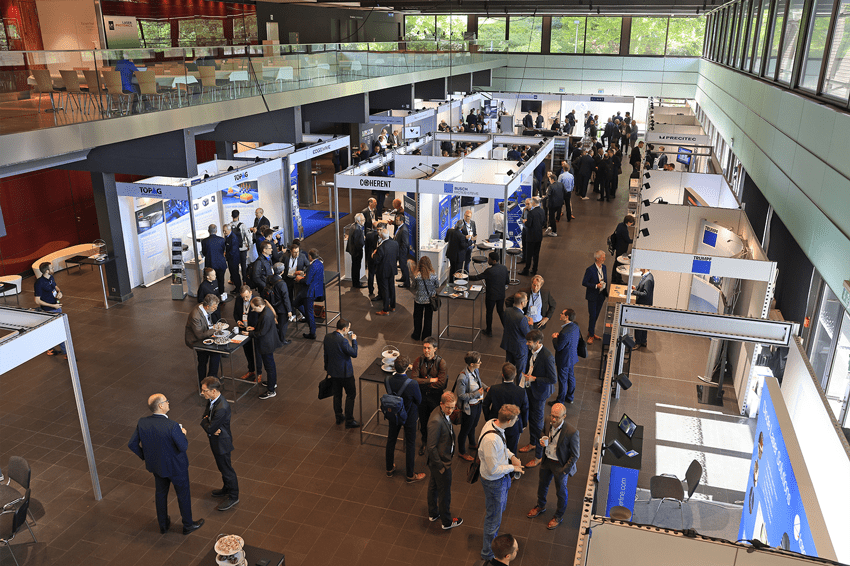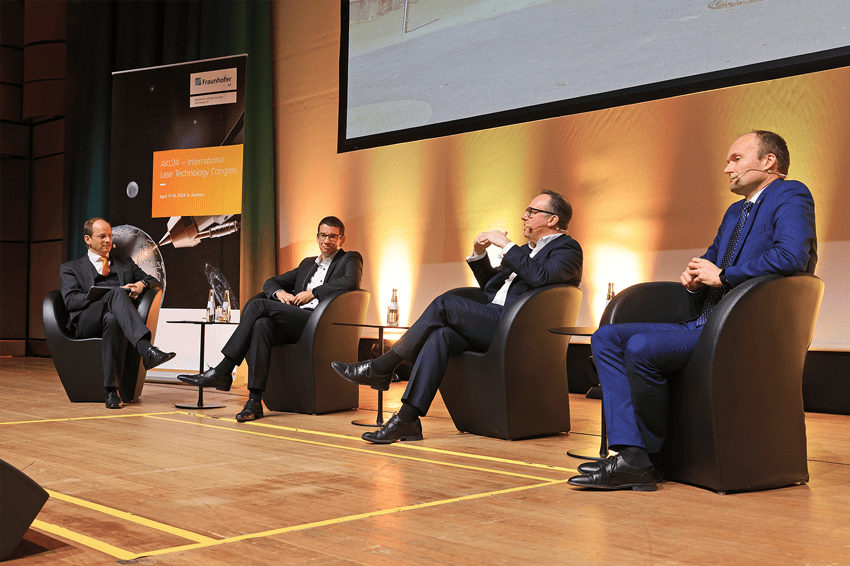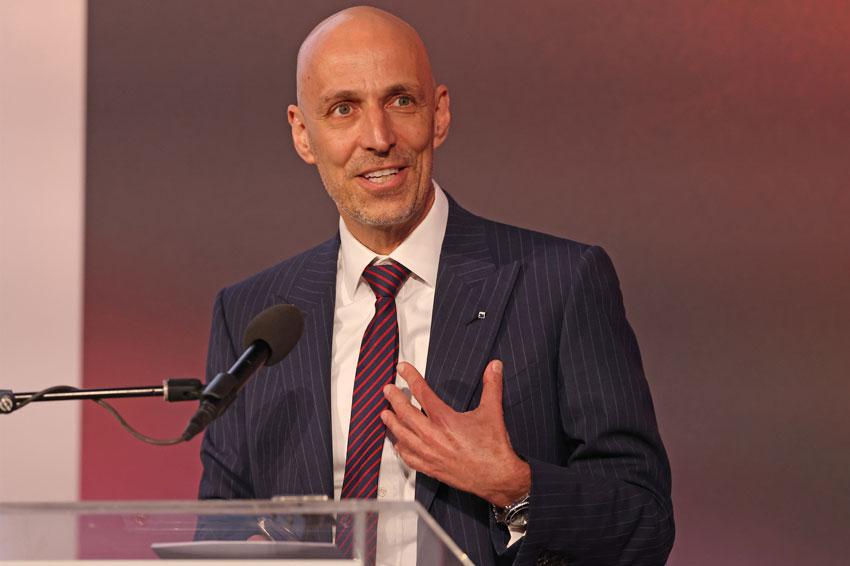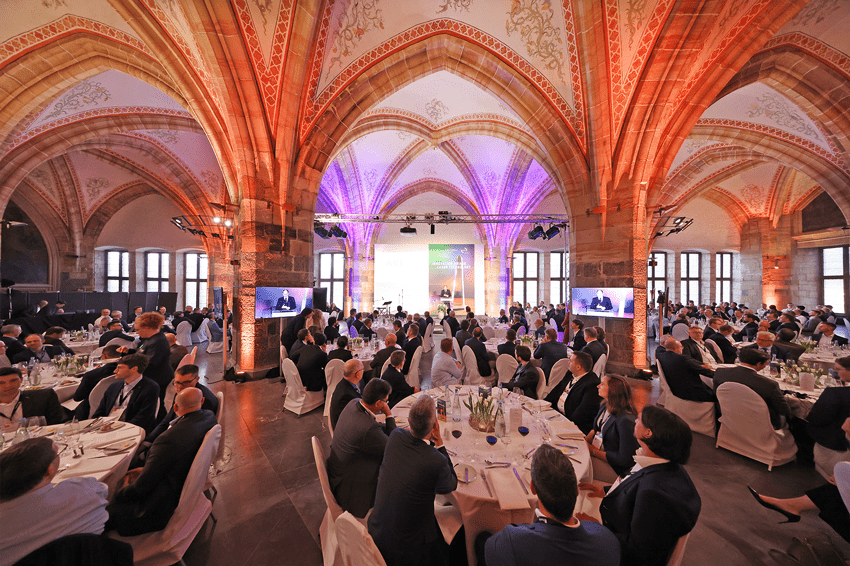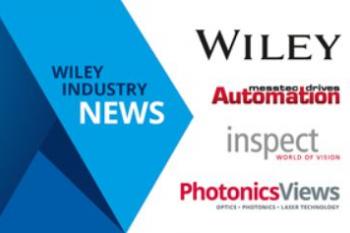Strong signals for photonics’ future
30.04.2024 - Review: AKL’24 - International Laser Technology Congress, 17 – 19 April 2024, Aachen, Germany
“We have not finished researching the laser. On the contrary – sixty years after its invention – things are just getting started!” said Prof. Constantin Haefner, Director of the Fraunhofer Institute for Laser Technology ILT in his closing speech at the AKL'24 in Aachen. Looking ahead, he sees huge, completely untapped markets for photonics with sales potential of many hundreds of billions of euros in the areas of “Quantum technologies, sustainability, secondary sources, cyberphotonics and inertial fusion energy (IFE).” This list reflects the top topics of this year’s AKL – International Laser Technology Congress, which attracted 525 participants, 80 speakers and 58 exhibitors from 21 countries.
The biennial event was accompanied by a fully booked exhibition and 60 “laser technology live” demonstrations in the laboratories of Fraunhofer ILT and RWTH Aachen University. The Innovation Award Laser Technology 2024 was also presented as part of the AKL’24: Edwin Büchter, co-founder, mentor and managing director of Cleansort in Rösrath, accepted the first prize of 10,000 euros on behalf of his entire team in the Coronation Hall of Aachen Town Hall. The prize is awarded every two years by the Arbeitskreis Lasertechnik and the European Laser Institute ELI. Around 350 guests attended the award ceremony.
In his inspiring keynote speech, Dr Peter Leibinger, chairman of the supervisory board of Trumpf, focused on the fascination and limitless possibilities of laser technology, but above all on the innovative strength of photonics research and industry. His speech set the right tone for the high-caliber three-day conference. In twelve forums and sessions, the focus was on innovations for established laser applications as well as the potential multi-billion euro markets of the future addressed by Constantin Haefner – including cyber photonics, quantum technologies and laser-ignited inertial fusion energy (IFE).
Digitalization and AI influence value creation and business models
One hot topic was omnipresent in the three-day lecture program: Artificial intelligence (AI) is opening up new horizons for research institutes, laser system providers and their users. Indeed, AI is becoming a highly effective tool, especially when combined with dynamically advancing digitalization and ever more closely meshed sensory process monitoring. This is because masses of data are generated along industrial process chains, which companies can process into information with added value thanks to AI.
One of the AKL’s highlights – the Gerd Herziger session – focused precisely on this topic. Prof Haefner discussed how digitalization and AI are influencing value creation and business models in laser technology with three top managers from the industry: Dr Hagen Zimer, board member and CEO of laser technology at Trumpf in Ditzingen, Germany, Dr Christoph Rüttimann, CTO of Bystronic Group in Niederönz, Switzerland, and Dr Christopher Dorman, executive vice president of the Coherent lasers business, California, USA. They agreed on the already rapidly increasing impact of AI on the photonics industry. And they reported on how their companies are embracing AI without any hesitation – and thus creating added value for their customers. “Access to data and the ability to derive added value from it with AI is already synonymous with competitive advantages,” Haefner concludes.
Photonics must act to maintain its role
In the medium term, there is much more at stake, namely the question of who will control the photonics markets in the future: Suppliers of photonic hardware or software companies – are the latter only integrating lasers into digital platforms as a commodity and shifting the actual value creation to digital services? In order to maintain its current status, the industry needs to act quickly, all three panelists agreed. Their joint thesis: Data science is the enabler for a deeper understanding of laser sources, laser processes, measurement, and sensor data. AI, machine learning and digital twins are expanding the technological repertoire, what in the medium term will enable self-learning machines and first-time-right production.
It became clear at the congress that the photonics industry is already on this path. AKL’s Forum on Digitalization & AI in photonic production showcased an extensive co-operation between Mercedes and Trumpf in this area. Presentations by Dr Markus Kogel-Hollacher, Precitec, Dr Simon Höges, GKN Additive, Dr Wolfgang Rohringer, Xarion Laser Acoustics, Dr Michael Ungers, Scansonic MI, Thibault Bautze-Scherff, Blackbird Robotersysteme, and Christoph Franz, 4D Photonics, also showed how intensively the industry is driving this topic forward.
Other forums and sessions focused on the latest developments in the field of functional surfaces, laser medical technology, additive manufacturing and the development of beam sources. Just like the further development of optical systems, this will have a major influence on the future markets of photonics – be it quantum technologies, cyberphotonics or laser-ignited inertial confinement fusion, to which Haefner dedicated an impressive closing lecture.
Contact
Arbeitskreis Lasertechnik e.V.
Steinbachstraße 15
52074 Aachen
Germany
+49 241 8906-420

